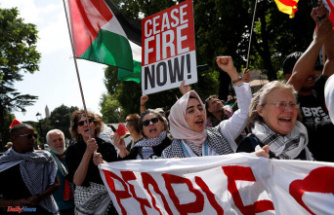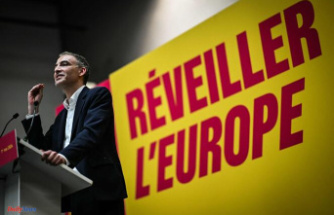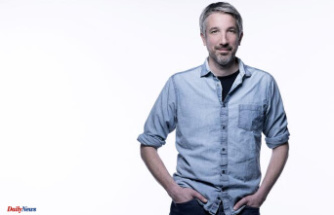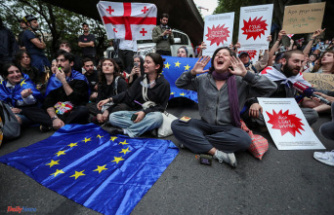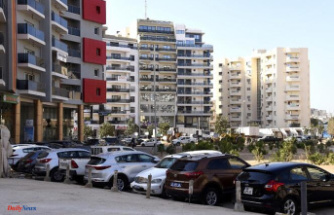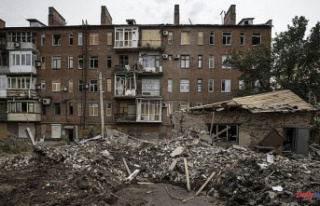After ten days of annual maintenance of the gas pipeline which directly connects the Siberian gas fields to the north of Germany, Europe was prepared for the energy company Gazprom, owner of the pipe, to cut off the tap for good.
Instead, Russian gas returned according to data published by German network operator Gascade, but only at 40% capacity, as before the maintenance. Austria and Italy also reported a resumption of deliveries.
The relief was therefore not in order.
“Given the missing 60% and the political instability, there is no reason to lift the alert,” reacted the president of the German Network Agency, Klaus Müller on Twitter.
“Nothing technically prevented Nord Stream from returning to full operation after its maintenance,” Economy and Climate Minister Robert Habeck said at a press conference, accusing Russia. to lack "reliability" and to "blackmail" Europe.
In the context of the war in Ukraine and the showdown between Moscow and the West over energy, Vladimir Putin is using gas as "a weapon", European Commission President Ursula von der Leyen had already denounced on Wednesday.
Arguing that there is no turbine under maintenance in Canada, Gazprom has drastically reduced its deliveries via Nord Stream since mid-June.
Nord Stream transports about a third of the 153 billion m3 of gas purchased annually by the EU. From Germany, the main customer, gas is then exported to several European countries.
- Turbines "pretext" -
Operating at 40% of capacity will be insufficient to guarantee the supply of individuals and businesses throughout the winter.
To avoid a major crisis, the European Commission proposed on Wednesday a plan aimed at reducing gas demand by 15% in the short term, with the possibility of making this objective binding in the event of an emergency.
The proposal is already making people cringe, in Spain in particular, where the government considers it unfair while the country is much less dependent on Russian gas than Germany.
In Germany, shortages could occur as early as February if the speed does not increase, according to assessments by the Federal Network Agency. A halt in Russian gas supplies would reduce the value of German GDP by almost 5 percentage points between 2022 and 2024, the International Monetary Fund (IMF) has calculated.
However, Vladimir Putin hinted this week that the gas pipeline could only operate at 20% of its capacity as of next week. The fault, according to the Russian president, to the turbines which equip the pipeline and which Russia has made a new instrument of pressure on the West.
The German government keeps accusing Russia of using turbine problems as a "pretext". The Kremlin, through its spokesman Dmitry Peskov, passed the ball on Thursday to Westerners, whose "restrictions" are, according to him, the cause of the technical problems of gas delivery.
- "A trying year 2023" -
Minister Robert Habeck has warned that Germany must prepare for a "testing year 2023".
Berlin plans to soon adopt an energy saving plan for businesses, administrations and housing, he added.
"It's obvious that Putin can and will turn off the tap when it's strategically convenient for him," said Lion Hirth, an energy economist at the Hertie School in Berlin. "This means that saving gas must be at the heart of all political efforts," he stressed.
The explosion in the cost of energy is already being felt, threatening recession for European economies which are barely recovering from the Covid-19 pandemic.
The urgency is already there for the first gas storer in Germany, and as such the biggest customer of Gazprom: the energy group Uniper risks bankruptcy if it does not receive state aid in the very short term.


